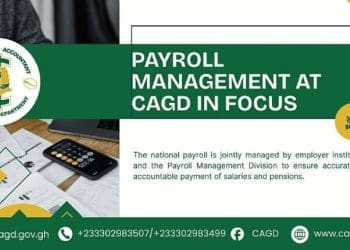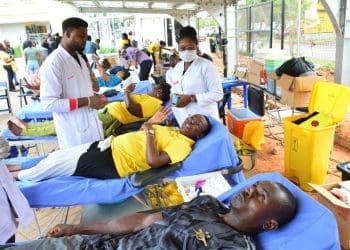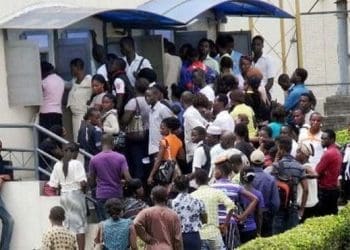The Africa Policy Lens (APL), a think tank led by distinguished economists, has moved to clarify a growing public misconception about the World Bank’s analysis of Ghana’s economic crisis in 2022.
According to the group, contrary to media reports, the World Bank has never dismissed the impact of the COVID-19 pandemic and the Russia-Ukraine war on Ghana’s economy.
Rather, the Bank has consistently highlighted how these shocks aggravated Ghana’s already fragile macroeconomic situation.
In a statement jointly signed by Dr. George Domfe, President of APL and Development Economist at the University of Ghana; Dr. Hayford Ayerakwa, Director of Research and Lecturer at the University of Ghana; and Dr. Eric Boakye Yiadom, Director of Publicity and Financial Economist at the University of Professional Studies, Accra, the group expressed concern about what it described as a misinterpretation of the World Bank’s position in sections of the media.
At the heart of the controversy is the World Bank’s 2025 Policy Notes on Transforming Ghana in a Generation, in which the Bank observed:
“The deterioration of global conditions due to the COVID-19 pandemic and the Russian Federation’s invasion of Ukraine was not the cause of the 2022 macroeconomic crisis; rather, it merely exposed an economy already beset with deep structural vulnerabilities and precarious macroeconomic conditions.”
Some reports misread this as a dismissal of the government’s repeated explanation that the crisis was driven by the pandemic and the war.
APL, however, insists that the World Bank’s statement should not be interpreted in isolation.
Structural weaknesses preceded global shocks
According to APL, the Bank’s point was not that COVID-19 and the war had no effect, but that Ghana’s deep-seated structural problems—particularly weak domestic revenue mobilisation, rising debt, and fiscal indiscipline—predated the global crises.
The shocks, therefore, acted as triggers that exposed the cracks.
This interpretation is consistent with earlier World Bank assessments.
For example, in its June 2022 Ghana Economic Update: Preserving the Future – Rising to the Youth Employment Challenge, the Bank documented how the pandemic and the Russia-Ukraine war, combined with pre-existing vulnerabilities to plunge Ghana into crisis.
The report stated, “Ghana finds itself in a more difficult macroeconomic and fiscal situation than most peers. Preexisting fiscal vulnerabilities, notably the low level of domestic revenue mobilisation, caused Ghana to experience the full impact of the COVID-19 crisis: its fiscal deficit and public debt stock became some of the most elevated in the region in 2021. As Ghana was hit particularly hard by the energy and food prices increase resulting from the war in Ukraine, its inflation accelerated faster than for most peers and reached 27.6 per cent year-on-year in May 2022.”
The World Bank further acknowledged that although Ghana’s economy grew by 5.4% in 2021 after rebounding from the pandemic-induced slowdown, the recovery was quickly undermined by global headwinds, especially surging energy and food prices caused by the war.
Evidence of severe impact
The Bank’s data painted a grim picture. Inflation soared, foreign reserves came under pressure, and fiscal stress deepened.
Ghana’s overall fiscal deficit (including energy and financial sector costs) more than doubled to 15.2% in 2020 as revenues slumped while the government ramped up spending to cushion households and businesses. Economic growth slowed sharply from 6.5 per cent in 2019 to just 0.5% in 2020, while more than 131,000 businesses faced severe challenges in accessing finance.
The World Bank’s reports also stressed that Ghana suffered disproportionately compared to its peers.
While other countries were also affected by global shocks, Ghana’s already weak buffers—low revenue mobilisation, unsustainable debt, and high expenditure commitments—meant that the pandemic and the war hit harder than elsewhere.
Clarifying the debate
APL, therefore, argues that suggestions that the World Bank has absolved the government of responsibility or dismissed its explanations are inaccurate.
Rather, the Bank’s position reinforces the view that Ghana must not rely on external factors as the sole explanation for its troubles but must confront and fix its long-standing structural challenges.
“The World Bank has never denied the significant impact of COVID-19 and the Russia-Ukraine war on Ghana’s economy. Instead, it has consistently emphasised that these shocks exposed and intensified pre-existing weaknesses,” the APL statement emphasised.
Recommendations and Policy Direction
To restore stability, the World Bank recommended strengthening Ghana’s macroeconomic framework, rebuilding fiscal buffers, and accelerating reforms to enhance domestic revenue mobilisation.
It also underscored the importance of resilience planning to shield the economy from future global shocks.
APL noted that the government has taken steps in this direction.
Between 2022 and 2024, Ghana recorded significant progress in domestic revenue mobilisation: GH¢75.34 billion in 2022, GH¢113.43 billion in 2023, and GH¢153.5 billion in 2024.
Foreign reserves also recovered, reaching US$8.9 billion by the end of 2024.
These improvements, APL added, demonstrate that reforms and prudent fiscal measures can strengthen Ghana’s capacity to withstand external shocks.













